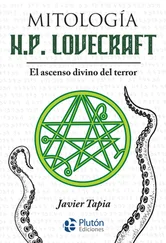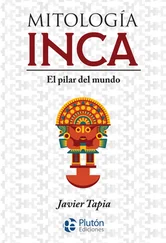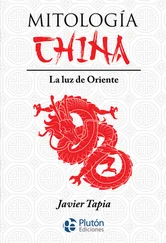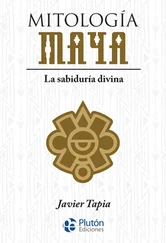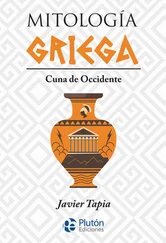From one end of the harbor to the other, Greek soldiers, exhausted, cadaverous, unclean, limped toward the embarkation point at Chesme, southwest of the city, awaiting evacuation. Their tattered uniforms were black with soot from the villages they’d burned in retreat. Only a week before, the waterfront’s elegant open-air cafés had been filled with naval officers and diplomats; now the quay was a holding pen. The first refugees had come with carpets and armchairs, radios, Victrolas, lampstands, dressers, spreading them out before the harbor, under the open sky. The more recent arrivals turned up with only a sack or a suitcase. Amid this confusion, porters darted everywhere, loading boats with tobacco, figs, frankincense, silk, and mohair. The warehouses were being emptied before the Turks arrived.
Dr. Philobosian spotted a refugee picking through chicken bones and potato peels in a heap of garbage. It was a young man in a well-tailored but dirty suit. Even from a distance, Dr. Philobosian’s medical eye noticed the cut on the young man’s hand and the pallor of malnutrition. But when the refugee looked up, the doctor saw only a blank for a face; he was indistinguishable from any of the refugees swarming the quay. Nevertheless, staring into this blankness, the doctor called, “Are you sick?”
“I haven’t eaten for three days,” said the young man.
The doctor sighed. “Come with me.”
He led the refugee down back streets to his office. He ushered him inside and brought gauze, antiseptic, and tape from a medical cabinet, and examined the hand.
The wound was on the man’s thumb, where the nail was missing.
“How did this happen?”
“First the Greeks invaded,” the refugee said. “Then the Turks invaded back. My hand got in the way.”
Dr. Philobosian said nothing as he cleaned the wound. “I’ll have to pay you with a check, Doctor,” the refugee said. “I hope you don’t mind. I don’t have a lot of money on me at the moment.”
Dr. Philobosian reached into his pocket. “I have a little. Go on. Take it.”
The refugee hesitated only a moment. “Thank you, Doctor. I’ll repay you as soon as I get to the United States. Please give me your address.”
“Be careful what you drink,” Dr. Philobosian ignored the request. “Boil water, if you can. God willing, some ships may come soon.”
The refugee nodded. “You’re Armenian, Doctor?”
“Yes.”
“And you’re not leaving?”
“Smyrna is my home.”
“Good luck, then. And God bless you.”
“You too.” And with that Dr. Philobosian led him out. He watched the refugee walk off. It’s hopeless, he thought. He’ll be dead in a week. If not typhus, something else. But it wasn’t his concern. Reaching inside a typewriter, he extracted a thick wad of money from beneath the ribbon. He rummaged through drawers until he found, inside his medical diploma, a faded typewritten letter: “This letter is to certify that Nishan Philobosian, M.D., did, on April 3, 1919, treat Mustafa Kemal Pasha for diverticulitis. Dr. Philobosian is respectfully recommended by Kemal Pasha to the esteem, confidence, and protection of all persons to whom he may present this letter.” The bearer of this letter now folded it and tucked it into his pocket.
By then the refugee was buying bread at a bakery on the quay. Where now, as he turns away, hiding the warm loaf under his grimy suit, the sunlight off the water brightens his face and his identity fills itself in: the aquiline nose, the hawk-like expression, the softness appearing in the brown eyes.
For the first time since reaching Smyrna, Lefty Stephanides was smiling. On his previous forays he’d brought back only a single rotten peach and six olives, which he’d encouraged Desdemona to swallow, pits and all, to fill herself up. Now, carrying the sesame-seeded chureki , he squeezed back into the crowd. He skirted the edges of open-air living rooms (where families sat listening to silent radios) and stepped over bodies he hoped were sleeping. He was feeling encouraged by another development, too. Just that morning word had spread that Greece was sending a fleet of ships to evacuate refugees. Lefty looked out at the Aegean. Having lived on a mountain for twenty years, he’d never seen the sea before. Somewhere over the water was America and their cousin Sourmelina. He smelled the sea air, the warm bread, the antiseptic from his bandaged thumb, and then he saw her—Desdemona, sitting on the suitcase where he’d left her—and felt even happier.
Lefty couldn’t pinpoint the moment he’d begun to have thoughts about his sister. At first he’d just been curious to see what a real woman’s breasts looked like. It didn’t matter that they were his sister’s. He tried to forget that they were his sister’s. Behind the hanging kelimi that separated their beds, he saw Desdemona’s silhouette as she undressed. It was just a body; it could have been anyone’s, or Lefty liked to pretend so. “What are you doing over there?” Desdemona asked, undressing. “Why are you so quiet?”
“I’m reading.”
“What are you reading?”
“The Bible.”
“Oh, sure. You never read the Bible.”
Soon he’d found himself picturing his sister after the lights went out. She’d invaded his fantasies, but Lefty resisted. He went down to the city instead, in search of naked women he wasn’t related to.
But since the night of their waltz, he’d stopped resisting. Because of the messages of Desdemona’s fingers, because their parents were dead and their village destroyed, because no one in Smyrna knew who they were, and because of the way Desdemona looked right now, sitting on a suitcase.
And Desdemona? What did she feel? Fear foremost, and worry, punctuated by unprecedented explosions of joy. She had never rested her head in a man’s lap before while riding in an oxcart. She’d never slept like spoons, encircled by a man’s arms; she’d never experienced a man getting hard against her spine while trying to talk as though nothing were happening. “Only fifty more miles,” Lefty had said one night on the arduous journey to Smyrna. “Maybe we’ll be lucky tomorrow and get a ride. And when we get to Smyrna, we’ll get a boat to Athens”—his voice tight, funny-sounding, a few tones higher than normal—“and from Athens we’ll get a boat to America. Sound good? Okay. I think that’s good.”
What am I doing? Desdemona thought. He’s my brother! She looked at the other refugees on the quay, expecting to see them shaking their fingers, saying, “Shame on you!” But they only showed her lifeless faces, empty eyes. Nobody knew. Nobody cared. Then she heard her brother’s excited voice, as he lowered the bread before her face. “Behold. Manna from heaven.”
Desdemona glanced up at him. Her mouth filled with saliva as Lefty broke the chureki in two. But her face remained sad. “I don’t see any boats coming,” she said.
“They’re coming. Don’t worry. Eat.” Lefty sat down on the suitcase beside her. Their shoulders touched. Desdemona moved away.
“What’s the matter?”
“Nothing.”
“Every time I sit down you move away.” He looked at Desdemona, puzzled, but then his expression softened and he put his arm around her. She stiffened.
“Okay, have it your way.” He stood up again.
“Where are you going?”
“To find more food.”
“Don’t go,” Desdemona pleaded. “I’m sorry. I don’t like sitting here all alone.”
But Lefty had stormed off. He left the quay and wandered the city streets, muttering to himself. He was angry with Desdemona for rebuffing him and he was angry at himself for being angry at her, because he knew she was right. But he didn’t stay angry long. It wasn’t in his nature. He was tired, half-starved, he had a sore throat, a wounded hand, but for all that Lefty was still twenty years old, on his first real trip away from home, and alert to the newness of things. When you got away from the quay you could almost forget that there was a crisis on. Back here there were fancy shops and high-toned bars, still operating. He came down the Rue de France and found himself at the Sporting Club. Despite the emergency, two foreign consuls were playing tennis on the grass courts out back. In fading light they moved back and forth, swatting the ball while a dark-skinned boy in a white jacket held a tray of gin and tonics courtside. Lefty kept walking. He came to a square with a fountain and washed his face. A breeze came up, bringing the smell of jasmine all the way in from Bournabat. And while Lefty stops to breathe it in, I’d like to take this opportunity to resuscitate—for purely elegiac reasons and only for a paragraph—that city which disappeared, once and for all, in 1922.
Читать дальше
Конец ознакомительного отрывка
Купить книгу


